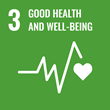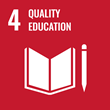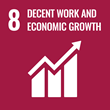
Project information
Hodnocení endotelové vrstvy rohovky u nositelů kontaktních čoček pomocí endoteliálního mikroskopu
(EVELIN)
- Project Identification
- MUNI/A/0963/2021
- Project Period
- 1/2022 - 12/2022
- Investor / Pogramme / Project type
-
Masaryk University
- Specific research - support for student projects
- MU Faculty or unit
-
Faculty of Medicine
- Mgr. Petr Veselý, DiS., Ph.D.
- doc. Mgr. Pavel Beneš, Ph.D.
- Mgr. Bc. Barbora Čáslavská
- Mgr. Kristýna Kalábová
- Mgr. Bára Pivoňková
- Mgr. Anastázie Říhová
- Mgr. Jana Sokolová Šidlová, Ph.D.
- Mgr. Jana Šalková Kráľová, Ph.D.
- Project Website
- https://is.muni.cz
- Keywords
- endothelial microscope, endothelial cell, contact lens
From the professional literature we know that contact lenses cause morphological changes in the corneal endothelium. The increase of the length of wearing time leads to a significant increase variation in cell size, a decrease of hexagonal cell percentage. More often is present an evident intercellular dark area. The corneal autofluorescence increases and the overall endothelial permeability decreases as a consequence of contact lens wear. Contact lens wear also caused corneal thinning, and the cornea became thinner with increasing duration of contact lens wear. Our aim is to use instrument Specular Microscope CEM-530 (Nidek, Japan) to prove these corneal changes in group of soft contact, RGP and hybrid lenses wearers in comparison with the control group of contact lens non-wearers.
Results
The average number of endothelial cells in the research group was 2607.11 +/- 298.45 cells per mm 2. The average number of endothelial cells in the control group was 2831.94 +/- 523.51 cells per mm 2. We tested these two variables using a T-test, which showed a statistically significant difference (p <0.001). A statistically significant difference in mean endothelial cell count related to patient age and use / non-contact lens use of the two types was demonstrated only in the under-40 group compared to the non-contact and keratoconus group and the keratoconus group using TKC (p = 0, 02). A statistically significant difference in the length of contact lens wear was demonstrated between the keratoconus-free group with or without MCC and the keratoconus group when wearing TKC or HKC for more than 20 years (p = 0.01 and p = 0.02). For HKC users, this difference was still demonstrated after 15 years of wearing (p = 0.001).
Sustainable Development Goals
Masaryk University is committed to the UN Sustainable Development Goals, which aim to improve the conditions and quality of life on our planet by 2030.
Publications
Total number of publications: 8
2022
-
Basic analysis of BV Disorders
Year: 2022, type: Workshop
-
Evropská konference optometrie a optiky v Dublinu měla i české zastoupení
Svatoanenské listy, year: 2022
-
Hodnocení endotelové vrstvy rohovky u nositelů kontaktních čoček pomocí endoteliálního mikroskopu
Česká a Slovenská oftalmologie, year: 2022, volume: 78, edition: 6, DOI
-
Multifokální brýle, jejich klady a zápory
Year: 2022, type: Requested lectures
-
Nemoci oka související s věkem: může výživa ovlivnit jejich vznik a progresi?
Česká oční optika, year: 2022
-
Nová terapie nabízí bezbolestné ulevení od syndromu suchého oka
Svatoanenské listy, year: 2022
-
Tear osmolarity, its measurement and correlation with other tests for dry eye examination
Year: 2022, type: Conference abstract
-
Vliv kouření, alkoholu, spánku a pohybové aktivity na VPMD
Česká oční optika, year: 2022




